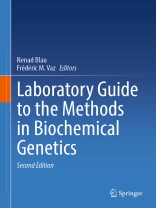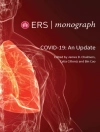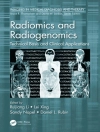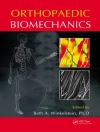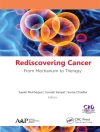Now in its 2nd edition, this manual describes laboratory methodology for the diagnosis of inherited metabolic diseases.
The book describes a spectrum of tests, from simple screening methods via classical methods that are operational in most (if not all) biochemical laboratories, to analytical methods that depend on technologies that very few are currently employing in their labs, but are certainly the functional techniques in a biochemical laboratory in this post-genomics era. Each chapter is sufficiently detailed to be self-contained, thus enabling laboratory specialists to adopt the method in their own laboratory and obviating the need for additional methods or references.
The second updated edition of the book is unique in that it is the first of its kind to be published in the last 13 years, and individual chapters have been developed by experts in the field citing both established and cutting-edge (omics) technology. Thus, it is an indispensable resource for researchers and clinicians working on the field of inherited metabolic diseases and those interested in laboratory diagnoses.
Зміст
Laboratory Strategies in Biochemical Genetics.- Quality Control and Quality Assurance in the Biochemical Genetic Laboratory.- Simple Metabolic Screening Tests.- Lactate, Pyruvate, Acetoacetate and 3-Hydroxybutyrate.- Amino Acids.- Homocysteine, S-adenosylmethionine and S-adenosylhomocysteine.- GABA, Homocarnosine, and ?-Alanine.- Pipecolic Acid.- Organic Acids.- Acylcarnitines, Including In Vitro Loading Tests.- Plasmalogens and Polyunsaturated Fatty Acids.- Very-Long-Chain Fatty Acids and Phytanic Acid.- Oxalate, Glycolate, Glycerate, Sulfate, and Citrate.- Glycerol and Glycerol Phosphates.- Biotinidase.- Mitochondrial Respiratory Chain.- Mucopolysaccharides.- Oligosaccharides.- Sialic Acid.- Glycosphingolipids.- Congenital Disorders of Glycosylation.- Enzymes and Metabolites of Carbohydrate Metabolism.- Polyols.- Diagnosis of Inherited Defects of Cholesterol Biosynthesis.- Lipoproteins.- Genetic Disorders of Steroid Metabolism Diagnosed by Mass Spectrometry.- Bile Acids.- Pterins and Related Enzymes.- Biogenic Amines.- Folates.- Screening for Disorders of Purine and Pyrimidine Metabolism Using HPLC-Electrospray Tandem Mass Spectrometry.- Creatine and its Metabolites.- Porphyrins, Porphobilinogen, and ?-Aminolevulinic Acid.- Trimethylaminuria.- A Tandem Mass Spectrometry Primer for Metabolite Disease Detection.- Molecular Genetics: Mutation Analysis in the Diagnosis of Metabolic Disorders.
Про автора
Nenad Blau is a senior consultant in biochemical genetics at the Division of Metabolism, University Children’s Hospital in Zürich (UZH), Switzerland. Previously he was the head of the Laboratory for Tetrahydrobiopterin and Neurotransmitter Diseases at the University Children’s Hospital in Zurich and for the last 8 years as a senior consultant in biochemical genetics at the University Children’s Hospital in Heidelberg, Germany. His research group discovered several inborn errors of metabolism, including GTP cyclohydrolase deficiency, pterin-carbinolamine dehydratase deficiency, and sepiapterin reductase deficiency. He established and curates the PAH locus-specific database, database of PKU genotypes and phenotypes, and database of BH4 deficiencies. With colleagues from Vancouver he developed the online knowledgebase of inborn errors of metabolism, IEMbase. He is author of more than 400 research publications, including the standard books Physician’s Guide to the Laboratory Diagnosis, Treatment and Follow-up of Inherited Metabolic Disease, and Laboratory Guide to the Methods in Biochemical Genetics. Professor Blau is an honorary member of the Italian Society for Pediatrics. He is also a Deputy Editor-in-Chief at the Molecular Genetics and Metabolism. For his research in the field of tetrahydrobiopterin and phenylketonuria he received the Horst-Bickel Award in 2001, the Gowland Hopkins Award in 2005, and he received the Asbjørn Følling award in 2011.
Frédéric Vaz is clinical biochemist specializing in inborn error of metabolism at the Laboratory Genetic Metabolic Diseases in the Amsterdam UMC, Amsterdam, the Netherlands where he also leads the Amsterdam UMC Core Facility Metabolomics. His research group focusses on the metabolism of complex lipids and their role in genetic disease, acquired disorders and ageing. In addition to developing numerous targeted assays to aid the diagnosis of inherited metabolic disorders his group created a set of metabolomics platforms including lipidomics, small molecule metabolomics and fluxomics which were successfully applied to discover new disorders, elucidate disease mechanism and find new diagnostic biomarkers. He is author of more than 200 research publications.
